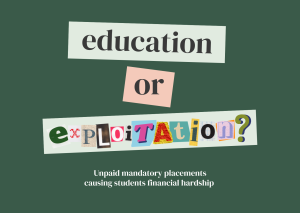It’s been a strange, strange semester. For students in particular, the transition to online classes could mean a lack of structure of in-person classes. And with so much uncertainty everywhere, studies may simply not be a priority anymore, or seem so mundane in the grand scheme of things.
But with final exams looming closer, you may be looking for ways to structure your schedules and re-motivate yourself for that final sprint. And we are here to help.
1. WorkFlowy (Free: iOS, Android, Web-based)
With the transition to virtual classes, you may have missed a lot of your lectures, tutorials and readings. Online classes are easy to forget and hard to be accountable for. So your first step is: make a list of all the classes you’ve missed, any lectures to review, or to skip.
WorkFlowy is a to-do list that works the way your brains works with streams of thoughts, lists and tabs. You can sort out everything you need to study before the exam in one giant list, before assigning dates, reordering tasks according to priority, and develop a revision plan.
 2. Forest / (iOS: $2.99 AUD although Flora is Free; Android: Free)
2. Forest / (iOS: $2.99 AUD although Flora is Free; Android: Free)
Sometimes, the hardest part about studying is starting. The Pomodoro technique has gained popularity for the research-supported concept of focus, but it may feel a bit mechanical. That’s where Forest comes in: a timer focus app with a fun twist.
In Forest, you can grow virtual trees. So if I set the timer for 25 minutes and stay focussed studying for the duration, my tree grows. However, my tree dies if I get distracted by leaving the app. You receive virtual coins that you can use to buy different types of coins and study with friends (where if one of you leaves the app, then everyone’s tree dies).
Other alternatives that are completely free include Flora (same concept, but more social).
 3. Mochi (Free: iOS, MacOS, Windows, Linux, Android, Web-based – however, syncing is premium feature)
3. Mochi (Free: iOS, MacOS, Windows, Linux, Android, Web-based – however, syncing is premium feature)
Without doubt, the most efficient way to study is through active recall – actively asking and answering questions to get those synapses firing. The classic method is making flashcards, but where making all of them on paper may require a lot of time, effort and time, Mochi comes to the rescue.
Mochi is relatively new as a platform, but is one of the most beautifully designed and functional apps I’ve come across. You can copy/paste all your lecture notes and create automatic flashcards and create active review schedules to pace yourself before the exam, incorporating pictures, mnemonics and study guides with ease.
You can use all the features for free, but the premium version is needed in order to sync between devices (for example, your phone and laptop).
Other alternatives include Anki (basic interface but popular; however, expensive iOS app), Quizlet (good flashcard system but basic features of rich text require premium version) and Mnemosyne.
BONUS MATERIAL:
As part of social distancing measures, a lot of YouTubers are creating study sessions that are essential live streams that are excellent for feeling socially connected during your studies. Every session is different: with or without music, with or without pomodoro techniques, and other features. You can find a whole range by searching ‘study with me live’ on YouTube, but this is the one I use.








